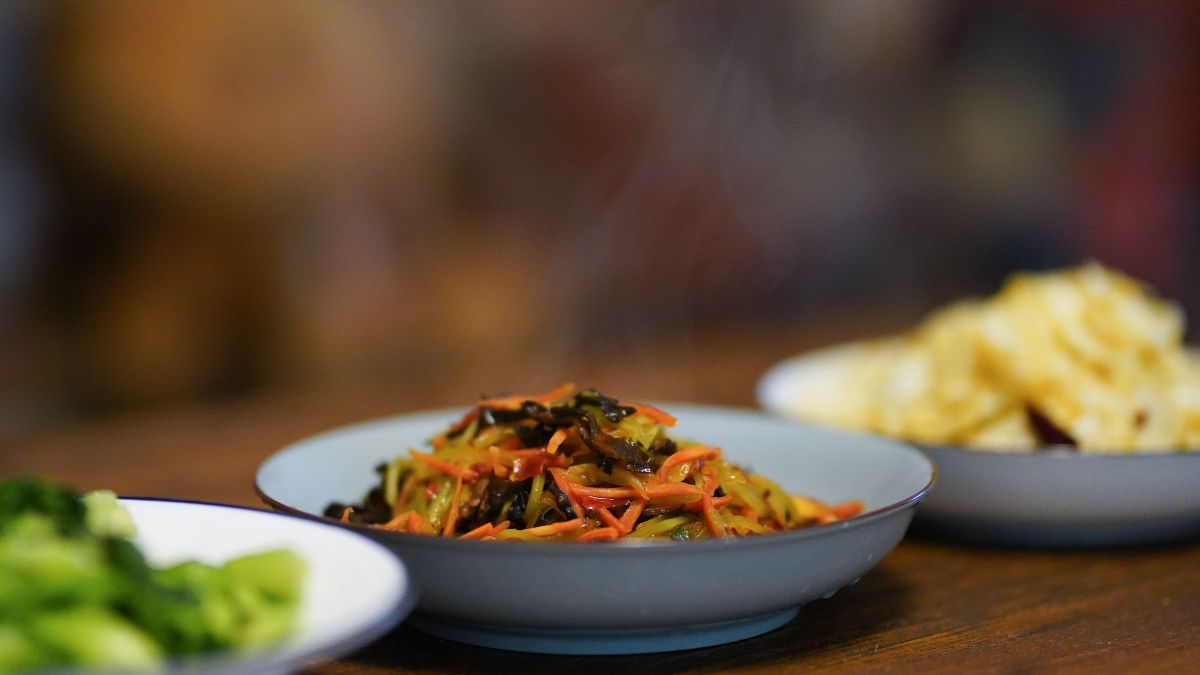Your Food Choices Affect Your Mood—Here’s How

You’re Not Just What You Eat—You Feel What You Eat
Ever noticed how you feel after eating a heavy meal full of sugar and carbs? Sluggish. Foggy. Irritable.
Now think about how you feel after a balanced meal—light, clear-headed, calm.
That’s not a coincidence.
What you eat directly affects how you feel.
Your plate isn’t just fueling your body—it’s shaping your mind and emotions.
Here’s how your food choices can change your mood—sometimes in ways you don’t even realize.
🍞 1. Sugar Spikes = Mood Crashes
That donut might give you a temporary boost, but an hour later? You’re cranky, tired, and craving more.
Here’s why:
- Sugar causes your blood sugar to spike quickly
- Your body then releases insulin to bring it back down
- This up-and-down rollercoaster messes with your mood
You might feel anxious, irritable, or emotionally drained, just because of what’s on your plate.
Solution: Choose whole grains, fruits, and low-glycemic carbs to keep energy (and emotions) stable.
🧂 2. Processed Foods Can Feed Depression
Many processed foods are full of:
- Artificial preservatives
- High sodium
- Hydrogenated oils
- Additives that disrupt gut health
Studies show diets high in processed foods are linked to higher rates of depression and anxiety.
Your brain and gut are closely connected, so when your gut health suffers, your mental health often follows.
Try this: Swap packaged snacks for real, whole foods—think nuts, seeds, fresh fruits, and veggies.
🥦 3. Gut Health = Mood Health
You have a second brain—and it lives in your gut.
It’s called the enteric nervous system, and it talks to your actual brain all day long.
When your gut is out of balance (due to bad food, stress, or antibiotics), it can lead to:
- Brain fog
- Low energy
- Depression
- Anxiety
The good news? You can feed your mood by feeding your gut.
Add these to your diet:
- Probiotic-rich foods (yogurt, kimchi, sauerkraut)
- Prebiotic fibers (bananas, oats, garlic)
- Fermented foods (miso, kefir)
ALSO READ: Anxiety That Comes From Not Feeling Enough – psychmyth
☕ 4. Caffeine and Alcohol Can Mess With Your Mental State
Caffeine gives a jolt of energy, but too much can lead to:
- Anxiety
- Jitters
- Sleep disruption
Alcohol, on the other hand, is a depressant. While it might relax you in the moment, it often leads to:
- Mood dips the next day
- Irritability
- Sleep issues
Balance is key.
Limit caffeine to the morning, drink water throughout the day, and keep alcohol occasional.
ALSO READ: The Healing Power of Doing Nothing – psychmyth
🥗 5. Nutrient-Rich Foods Can Lift Your Mood Naturally
Certain vitamins and minerals directly support mental wellness:
- Omega-3s (found in fatty fish, walnuts): Reduce anxiety and inflammation
- Magnesium (found in leafy greens, seeds): Helps with stress regulation
- Vitamin B12 (found in eggs, dairy, meat): Supports brain function
- Iron (found in lentils, spinach): Prevents fatigue and brain fog
When your body gets what it needs, your mind benefits too.
Mood tip: Try building your meals around color and variety—more nutrients = more mood support.
🌤 Final Words: Eat Like Your Mood Depends On It—Because It Does
Food isn’t just fuel—it’s information.
Every bite you take sends messages to your brain and body.
Some foods create calm. Others trigger chaos.
If you’re feeling off, anxious, moody, or low-energy, look at your plate.
Small changes in your diet can lead to big shifts in your emotional balance.
You don’t have to be perfect. Just intentional.
Start with one upgrade today.
Because your peace of mind might just start with breakfast.

